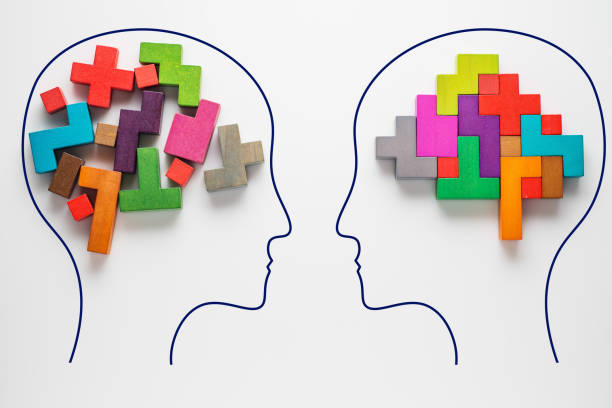How IQ Tests Are Used to Measure Cognitive Abilities and Learning Patterns
IQ tests are assessments that explore various aspects of cognitive ability, such as problem-solving, memory, and reasoning skills. While results may differ across individuals, these tests can provide a structured way of understanding certain strengths and approaches to learning. They are often used in research, education, and self-assessment contexts.

Insights Into How IQ Tests Assess Reasoning and Problem-Solving
IQ tests employ a variety of question types specifically designed to measure different aspects of intelligence. Most modern assessments include sections that evaluate verbal comprehension, perceptual reasoning, working memory, and processing speed. Verbal comprehension questions assess language skills and general knowledge, while perceptual reasoning items test non-verbal problem-solving through pattern recognition, spatial reasoning, and logical thinking tasks.
Working memory subtests measure the ability to hold and manipulate information in short-term memory, often through digit span exercises or arithmetic problems. Processing speed components evaluate how quickly individuals can process simple information without making errors. Through this multi-faceted approach, IQ tests attempt to capture a comprehensive picture of cognitive functioning rather than a single ability. The diversity of tasks ensures that different cognitive strengths can be identified, providing a more nuanced understanding of intelligence beyond a single numerical score.
The Role of IQ Testing in Understanding Learning Patterns
IQ test results provide valuable insights into how individuals learn and process information. By analyzing performance across different cognitive domains, psychologists and educators can identify specific learning strengths and challenges. For instance, a person showing strong verbal abilities but weaker working memory might benefit from learning strategies that capitalize on their language skills while providing support for information retention.
These assessments help distinguish between different types of learning difficulties. A child struggling academically might undergo IQ testing as part of a comprehensive evaluation to determine whether their challenges stem from intellectual disability, specific learning disorders, or other factors. The pattern of scores across subtests often reveals more useful information than the overall IQ score alone. For example, significant discrepancies between verbal and performance abilities might suggest specific learning disorders that require targeted interventions. This nuanced understanding helps develop personalized educational approaches that address individual learning patterns.
Different Contexts Where IQ Assessments Are Applied
IQ tests serve diverse purposes across multiple settings. In educational contexts, they help identify students who might qualify for gifted programs or require special education services. Schools often use these assessments as one component of a comprehensive evaluation process to ensure students receive appropriate academic support and challenge.
In clinical psychology, IQ tests contribute to diagnosing conditions like intellectual disability and specific learning disorders. When combined with other assessments, they provide valuable data for treatment planning and intervention. Neuropsychologists use these tests to evaluate cognitive functioning following brain injuries or neurological conditions, tracking recovery and helping design rehabilitation programs.
Research settings employ IQ tests to study intelligence development, genetic influences on cognition, and the effectiveness of educational interventions. Some organizations use modified intelligence assessments in employment contexts, particularly for positions requiring specific cognitive abilities. The military has historically used intelligence testing to determine appropriate job placements for recruits. However, the use of IQ tests in employment settings remains controversial and is subject to legal restrictions in many jurisdictions.
Limitations and Ethical Considerations in IQ Testing
Despite their widespread use, IQ tests have significant limitations and raise important ethical questions. These assessments can reflect cultural biases, potentially disadvantaging individuals from different backgrounds. Test performance may be influenced by factors unrelated to intelligence, such as test anxiety, language proficiency, or familiarity with test formats.
The historical misuse of IQ testing to support discriminatory policies highlights the importance of ethical test administration and interpretation. Modern approaches emphasize viewing IQ scores as one data point among many, rather than a definitive measure of a person’s potential or worth. Responsible practitioners consider contextual factors and use multiple assessment methods when making important educational or clinical decisions. The ongoing refinement of IQ tests attempts to address these issues, with developers working to create more culturally fair assessments that capture diverse expressions of intelligence.
Modern Developments in Intelligence Assessment
Intelligence testing continues to evolve with advancing cognitive science research. Contemporary approaches increasingly embrace Howard Gardner’s theory of multiple intelligences and Robert Sternberg’s triarchic theory, recognizing that traditional IQ tests capture only certain aspects of human cognitive abilities. New assessment tools measure additional domains like emotional intelligence, practical intelligence, and creative thinking.
Digital administration of IQ tests is becoming more common, allowing for adaptive testing that adjusts difficulty levels based on performance. This approach provides more precise measurement across the ability spectrum. Neuroimaging studies are beginning to connect IQ test performance with brain structure and function, deepening our understanding of the biological basis of intelligence. Despite these advances, the fundamental purpose remains consistent: to provide useful information about cognitive abilities that can inform educational, clinical, and personal decisions.
Conclusion
IQ tests remain valuable instruments for measuring cognitive abilities and understanding learning patterns when used appropriately and interpreted carefully. While they cannot capture the full complexity of human intelligence, they provide standardized information about reasoning, problem-solving, and information processing that helps inform educational and clinical interventions. As our understanding of intelligence continues to evolve, so too will the methods we use to assess it, likely incorporating broader conceptions of cognitive abilities and leveraging new technologies for more comprehensive evaluation.
This article is for informational purposes only and should not be considered medical advice. Please consult a qualified healthcare professional for personalized guidance and treatment.




